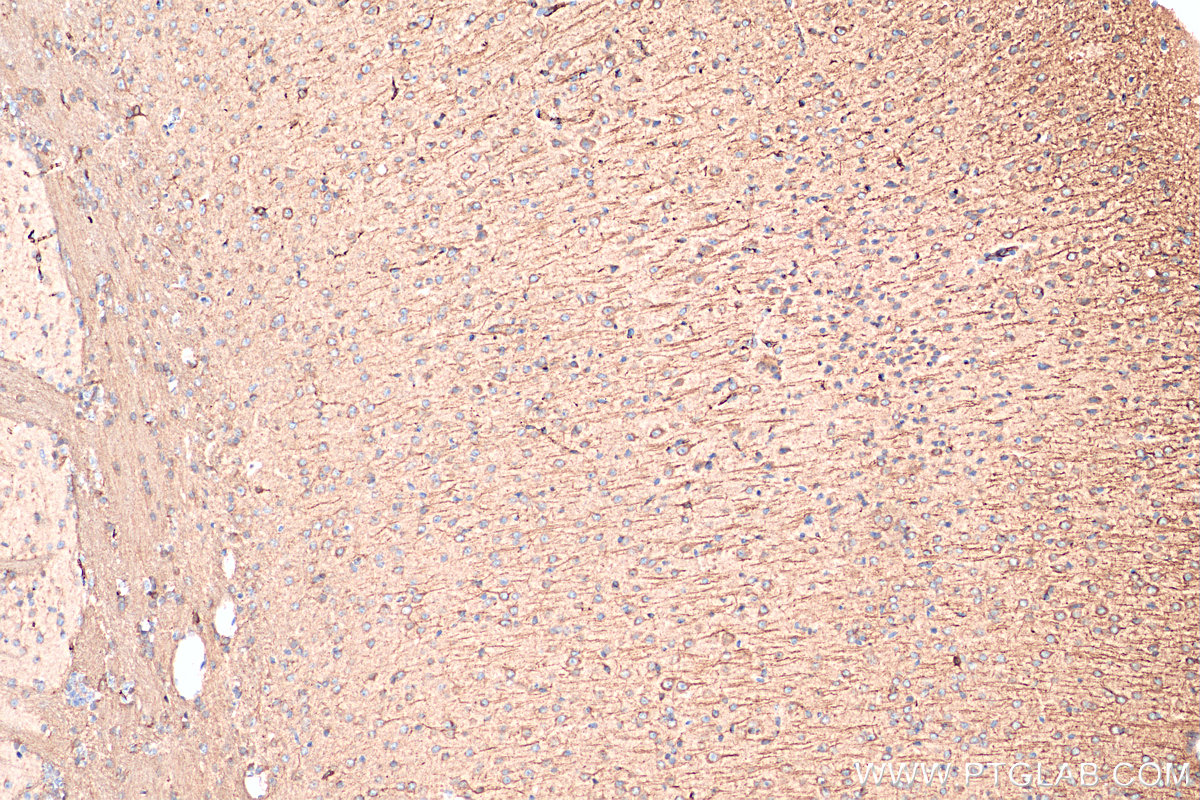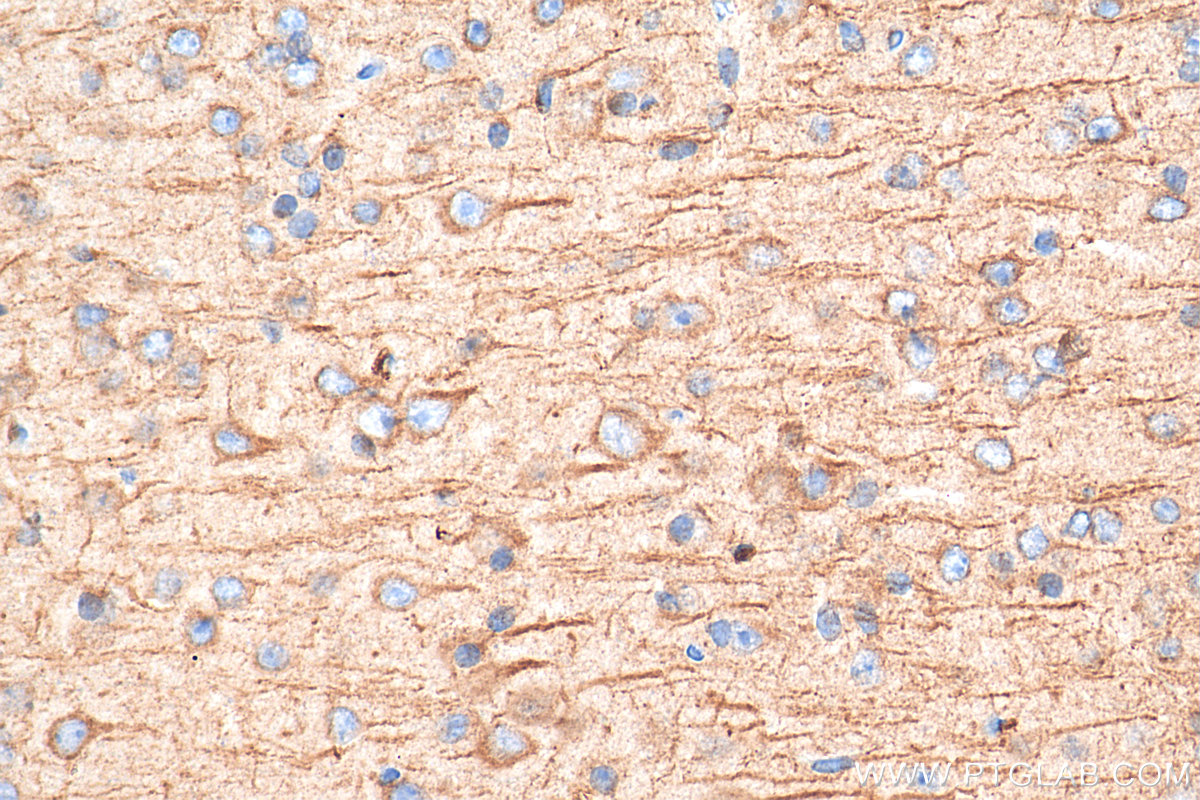PTPRT Polyclonal antibody
PTPRT Polyclonal Antibody for IHC, ELISA
Host / Isotype
Rabbit / IgG
Reactivity
human, mouse
Applications
IHC, ELISA
Conjugate
Unconjugated
验证数据展示
经过测试的应用
| Positive IHC detected in | mouse brain tissue Note: suggested antigen retrieval with TE buffer pH 9.0; (*) Alternatively, antigen retrieval may be performed with citrate buffer pH 6.0 |
推荐稀释比
| Application | Dilution |
|---|---|
| Immunohistochemistry (IHC) | IHC : 1:50-1:500 |
| It is recommended that this reagent should be titrated in each testing system to obtain optimal results. | |
| Sample-dependent, Check data in validation data gallery. | |
产品信息
25473-1-AP targets PTPRT in IHC, ELISA applications and shows reactivity with human, mouse samples.
| Tested Applications | IHC, ELISA Application Description |
| Tested Reactivity | human, mouse |
| Immunogen | Peptide 种属同源性预测 |
| Host / Isotype | Rabbit / IgG |
| Class | Polyclonal |
| Type | Antibody |
| Full Name | protein tyrosine phosphatase, receptor type, T |
| Synonyms | KIAA0283, PTPRT, R PTP T, RPTP rho, RPTPrho |
| Calculated Molecular Weight | 164 kDa |
| GenBank Accession Number | NM_007050 |
| Gene Symbol | PTPRT |
| Gene ID (NCBI) | 11122 |
| RRID | AB_3085797 |
| Conjugate | Unconjugated |
| Form | Liquid |
| Purification Method | Antigen affinity purification |
| UNIPROT ID | O14522 |
| Storage Buffer | PBS with 0.02% sodium azide and 50% glycerol pH 7.3. |
| Storage Conditions | Store at -20°C. Stable for one year after shipment. Aliquoting is unnecessary for -20oC storage. |
背景介绍
PTPRT is a member of the type IIB receptor-type protein tyrosine phosphatase family, linked to signal transduction, cell adhesion and neurite extension. PTPRT plays a role in regulation of synaptic formation and neuronal development. It regulates synaptic function and neuronal development through interactions with neuronal adhesion molecules and the dephosphorylation of synaptic molecules. PTPRT is mainly expressed in nervous system (PMID:19816407, PMID: 25748173).
实验方案
| Product Specific Protocols | |
|---|---|
| IHC protocol for PTPRT antibody 25473-1-AP | Download protocol |
| Standard Protocols | |
|---|---|
| Click here to view our Standard Protocols |

